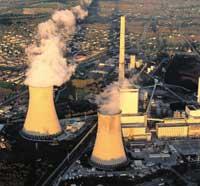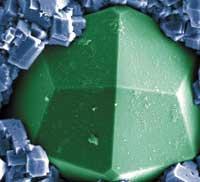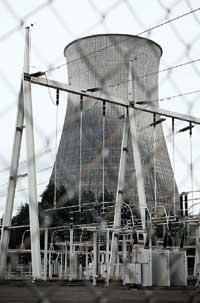Do we need nuclear energy?

Also here, in Euskal Herria, numerous pages of newspapers, radio programs and television images were filled in their time of debate, which even became a bloody struggle. They were years against the Lemoiz nuclear power plant. The Lemoiz nuclear power plant project was developed in recent years in the government of Franco, along with those of Deba, Ea-Ispaster and Tudela. None of them came to be executed, since, among other things, a strong movement against nuclear energy was found.
In that time and environment it can be understood that the debate reaches the maximum because the project of construction of four nuclear power plants in such a small and populated territory was not to the liking of the majority. The opponents of the projects then spoke of nuclear risks, while the supporters spoke of the need for energy that the Basque Country had, saying that if the nuclear power plants were not made, the Basque Country would have to live in the dark. In Europe the environment was similar, since in the 1970s numerous nuclear power plants were built in many countries. Therefore, the fight against nuclear energy was in force.
The project of the Lemoiz nuclear power plant evolved and after many vicissitudes and struggles, in 1983 the works were paralyzed and in 1994 the project was suspended.
But in 1979, to the detriment of nuclear power supporters around the world, there was an accident at the Three Mile Island nuclear power plant in Pennsylvania, United States. There was a radioactive leak and the people who lived in the surroundings had to leave there. There were no casualties, but the event put global public opinion against nuclear power stations. The concern for the safety of this type of energy was imposed.

Seven years later, there was the most dramatic accident in the history of peaceful use of nuclear energy in Chernobil, Ukraine. Inside the plant it exploded, destroyed the reactor and caused a radioactive leak. The influence of the disaster spread to an area where nearly 5 million people lived. All the towns and cities that were within a radius of 30 kilometers of the central station had to be evacuated. While at first the impact of the accident was underestimated, at present, taking stock is said that the Chernobil disaster directly killed 20,000 people, which has caused more than 300,000 people to suffer from cancer.
The event did not contribute to initiatives in favor of nuclear energy. However, the focus of interest of the debate changed a little. The Soviet Union addressed the security failures of conventional nuclear power plants. However, since then there have been at least two major accidents outside the Soviet sphere: one in 1999 in Japanese Tokaimura and the other on February 15 last year, at the U.S. nuclear power plant in Con Edison, 50 kilometers from New York.
Therefore, the nuclear debate yes/no nuclear, with its ups and downs, is there for a long time. It is now booming. But why?
The debate is based, without a doubt, on a reality without debate: the main sources of current energy will once be exhausted. In addition, it is clear that in the world more and more energy is consumed and that this is the trend for the coming years. Therefore, the main existing energy sources must be replaced, seeking alternatives.
And in this search for alternatives the debate and competition arises: on the one hand, for nuclear energy; on the other, for renewable energies. The nuclear power plants do not emit carbon dioxide to the atmosphere, they have a high energy performance, the current ones do not have much to do with those of season, they have advanced a lot… but they are still dangerous and the management of radioactive waste generates enough worry and debate. Renewable energies are risk-free, inexhaustible, clean with respect to the environment… but they are not very energy efficient, although they are increasingly more energy efficient.

It is being investigated in both areas and it seems that it will soon be time to make decisions. The Kyoto protocol is also there. The protocol has basically opted for measures to remedy climate change, conservation of biodiversity and resources, and for not leaving waste to future generations. But it has not yet been signed and the Americans have turned their backs on him. To that extent, the debate on nuclear energy has once again been drawn up. Although they are mainly circumscribed to specialized journals, scientists have begun to provide their opinions.
In June 2001, Physics World published a discussion article entitled “Do We Need Nuclear Energy?” The debate takes place between two high-level experts: The nuclear physicist Peter Hodgson, in favor of yes, and economist Dennis Anderson along with no. The debate is too long for the magazine Elhuyar Zientzia eta Teknika, full of details and therefore difficult to summarize correctly. However, given the relevance and relevance of the subject, with the permission of the journal Physics World you can read on the web in Basque in the scientific portal Zientzianet. The address is: www.zientzia.net





